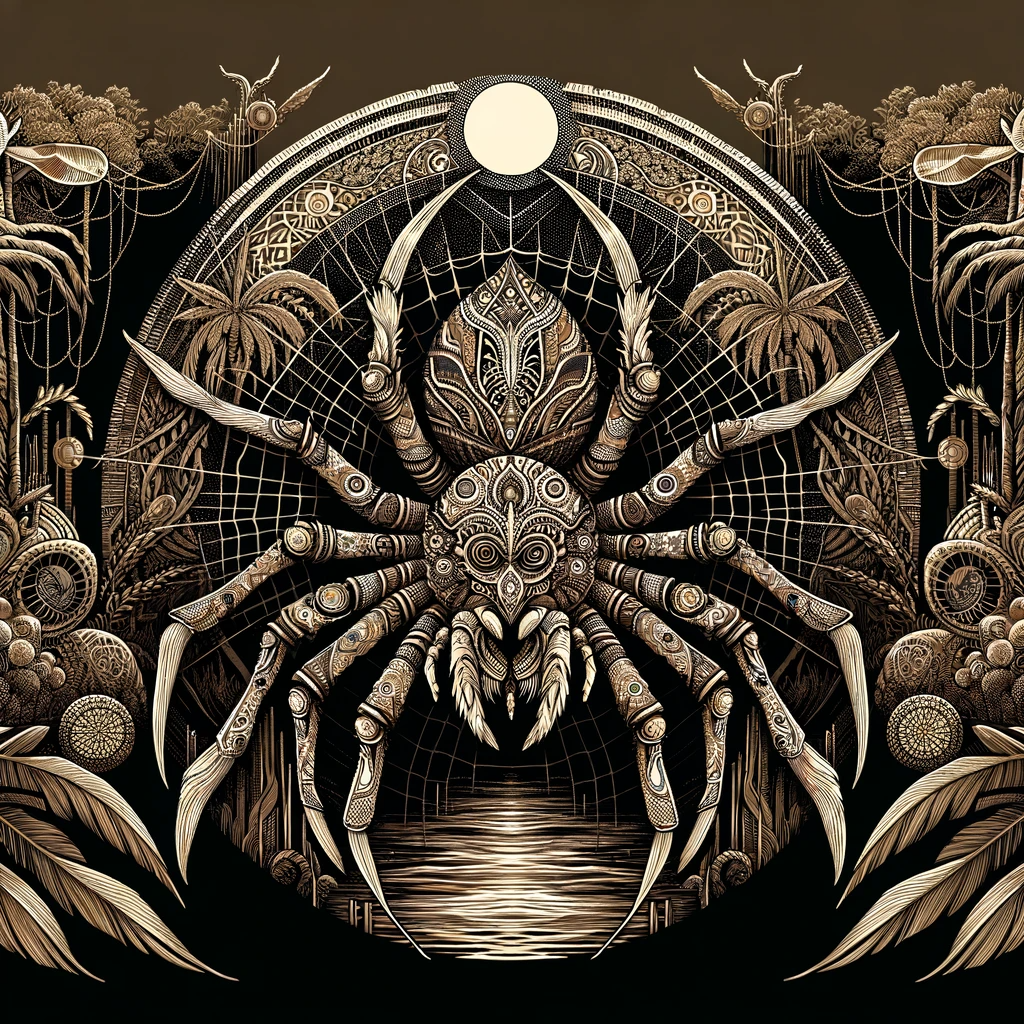
The spider deity Uloba is a fascinating and lesser-known figure in Philippine mythology.
Origins and Mythological Background
Uloba, whose name is derived from the local word for spider, emerges from the diverse and intricate mythological traditions of the Philippines, a country with a rich tapestry of cultural narratives influenced by its numerous indigenous groups and their unique belief systems. The spider deity is primarily associated with the creation and weaving of life, a theme commonly found in spider-related myths worldwide.
Symbolism and Powers
In many cultures, spiders symbolize the art of weaving and creation, and Uloba is no exception. This deity is often depicted as a master weaver, with its web symbolizing the interconnectedness of all life forms. The web of Uloba is not just a physical construct but also a metaphor for the network of fate and destiny that binds all beings.
Uloba’s powers extend beyond mere creation. As a guardian of knowledge and wisdom, this deity is also associated with the teaching of vital skills and the imparting of sacred wisdom to the people. In some tales, Uloba is a guide, leading souls to their destinies or offering insights that shape the course of events in the mortal world.
Cultural Impact and Worship
The worship and reverence of Uloba vary significantly across different Filipino communities. In some regions, Uloba is venerated as a primary deity, with rituals and offerings made to honor the spider god’s creative and protective powers. In other areas, Uloba is part of a broader pantheon of deities, playing a specific role in the cosmology of those communities.
Festivals and rituals dedicated to Uloba often involve the creation of intricate weavings or artworks, symbolizing the deity’s mastery over creation and design. Storytelling and the passing down of traditional folktales are also integral parts of these celebrations, reflecting Uloba’s role as a keeper of wisdom and history.
Modern Relevance
In contemporary times, Uloba has experienced a resurgence in interest, particularly among those looking to reconnect with their cultural heritage. The deity represents not only a link to the past but also a symbol of creativity, interconnectedness, and resilience in the face of adversity.
Environmental conservationists have also found inspiration in Uloba’s imagery, seeing the spider’s delicate yet strong web as a metaphor for the fragile interconnectedness of ecosystems and the need for responsible stewardship of nature.
Conclusion
Uloba, the spider deity of Philippine mythology, remains a captivating figure, embodying themes of creation, wisdom, and interconnectedness. As a symbol deeply rooted in the cultural and spiritual fabric of the Philippines, Uloba continues to inspire and resonate with people, both within the archipelago and beyond, serving as a timeless reminder of the intricate and beautiful tapestry of life.
